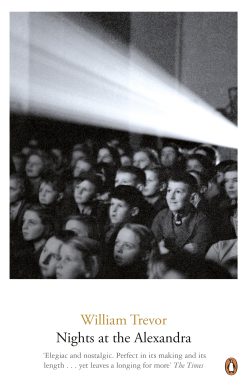Those Twentieth-Century Blues: An Autobiography
| by |
|---|
15.99 JOD
Please allow 2 – 5 weeks for delivery of this item
Description
The autobiography of one of Britain’s greatest composers is as idiosyncratic as the man himself, revealing his insatiable curiosity about people and places, ideas and sensations, and music of every kind. Vigorous, brave, funny, candid about his sexual and emotional life, Sir Michael has written a remarkable, memorable book.
Additional information
| Weight | 0.398 kg |
|---|---|
| Dimensions | 2 × 15.3 × 23.4 cm |
| by | |
| Format | Paperback |
| Language | |
| Pages | 304 |
| publisher | |
| Year Published | 1994-7-7 |
| Imprint | |
| Publication City/Country | London, United Kingdom |
| ISBN 10 | 0712660593 |
| About The Author | Sir Michael Tippett studied at London's Royal College of Music, where he later returned to learn the contrapuntal skills so integral to his musical style. Deeply responsive to world events, he began 'A Child of Our Time' on the day war broke out in 1939 – on the advice of T S Eliot he wrote his own libretto for it and future works. In 1940, whilst Director of Music at London's Morley College, Tippett discovered the music of Purcell, whose sensitive word-setting and dramatic vocal style he emulated and developed in his operas. A conscientious objector, in 1943 he was sentenced to three months in Wormwood Scrubs – he remained a committed pacifist and humanitarian. Forever inspired by the music of the past Tippett also worshipped Beethoven, particularly his innate sense of musical architecture and structure. Tippett absorbed many musical influences into his work, including negro spirituals in 'A Child of Our Time', and the blues in 'The Knot Garden', which, along with 'The Ice Break' includes substantial parts for electric guitar. |
| Review Quote | What makes THOSE TWENTIETH CENTURY BLUES so fascinating, and often very moving, is not just its illumination of a richly patterned life, but the sheer candour of the reminiscences. . . It is altogether an admirable book. . . touchingly honest and endearing. |
| Other text | Richly entertaining. . . The heady flavour of the man himself is here. |
Related products
-
On backorder 2-5 Weeks to Arrive
12.99 JOD -
On backorder 2-5 Weeks to Arrive
15.99 JOD -
On backorder 2-5 Weeks to Arrive
15.99 JOD -
On backorder 2-5 Weeks to Arrive
7.99 JOD





